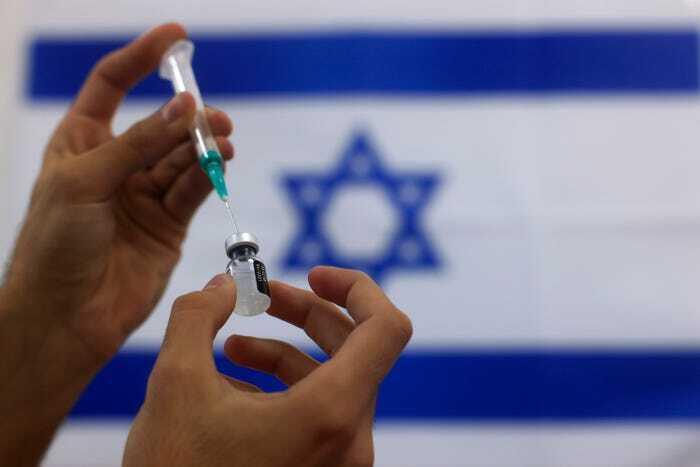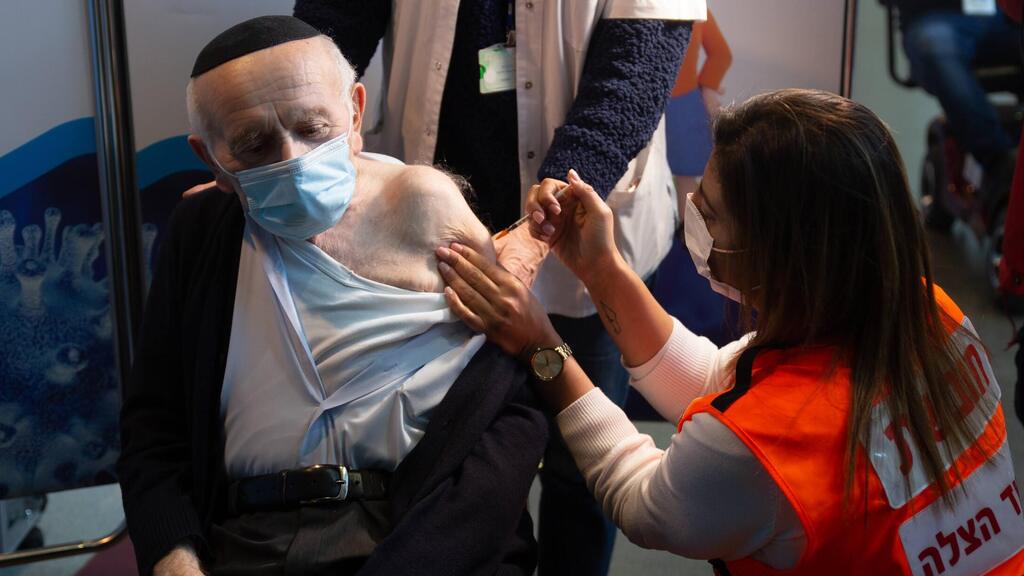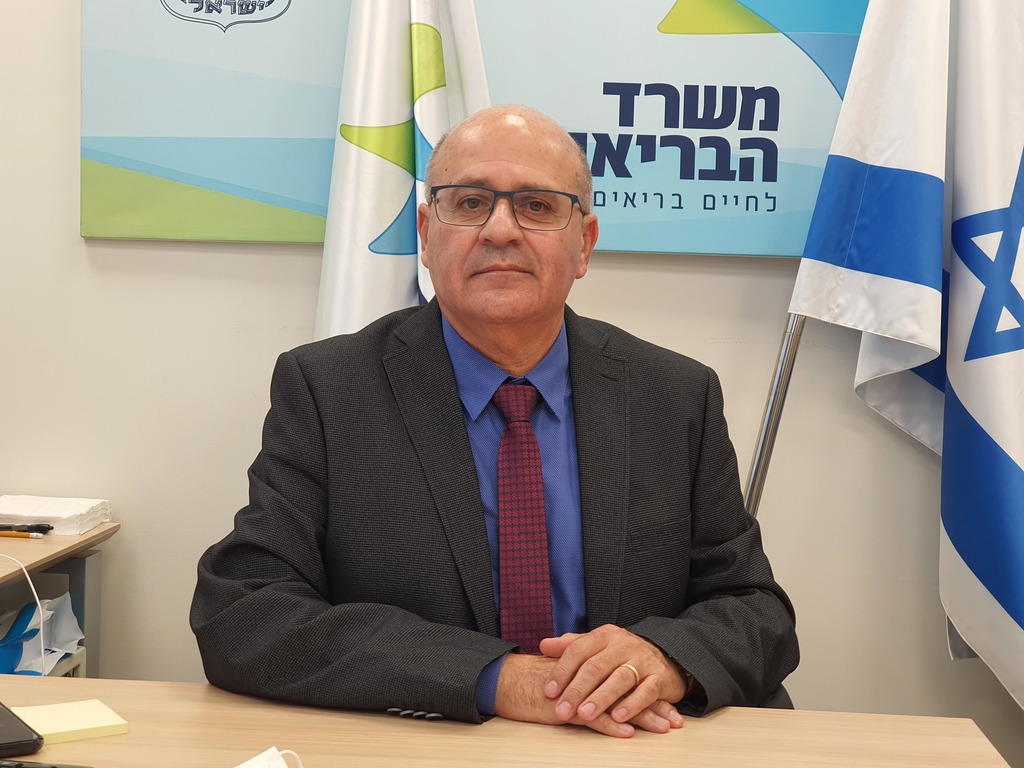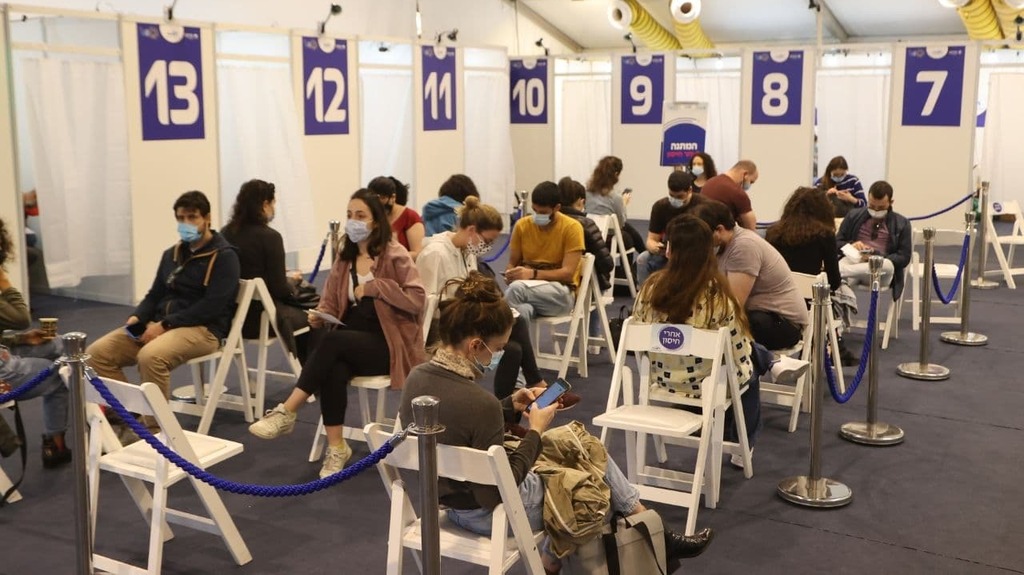Health Ministry Director-General Prof. Hezi Levi on Tuesday dismissed speculation that Israel is in immediate danger of running out of coronavirus vaccines, saying the country currently has enough doses to fully inoculate those who wish it.
Levi dismissed the claims made by officials, including some in the Prime Minister's Office, that followed the cancellation of Monday’s cabinet meeting during which ministers were scheduled to approve the purchase of millions of additional vaccines.
Prime Minister Benjamin Netanyahu, who is currently trying to muster enough support to remain in office following last week's inconclusive elections, made Israel's world-leading vaccination rollout a central platform of his reelection campaign.
“I will not list the numbers [of doses] because these are things that are under an NDA with the companies that provided us with the vaccines," Levi told Ynet.
"What I can say is that we have enough doses for both people who have not been vaccinated and also those who have recovered from the disease and only require one dose to be fully inoculated.”
He clarified, however, that the additional doses must be acquired in case new strains of the coronavirus emerge, leading to the need for a booster shot for those who are already fully vaccinated.
Israel has administered at least one dose of the two-stage vaccine to 5.2 million of its 9 million population and both doses to 4.7 million people, issuing a "Green Pass" to the fully vaccinated that allows them to resume some form of pre-pandemic life.
4 View gallery


A healthcare worker prepares to administer the Pfizer coronavirus vaccine
(Photo: AP)
Levi said that the Health Ministry, alongside other ministries, "gave the government a recommendation that Israel must purchase more vaccines that will last us until 2022, and perhaps until 2023 as well."
According to Levi, despite the sufficient number of vaccines, the ministry wants the government to approve the budget for additional doses in order to get a “head start” on the procurement phase.
“The whole world is in an 'arms race' to buy vaccines that are being underproduced," he said.
"Only recently we heard that Europe is trying to restrict the export of vaccines to other countries. This is why we want to buy vaccines for coming years, especially for next year,” Levi added.
“We need vaccines for about 9 million citizens. We assume there will be a vaccine for children and maybe even new vaccines to protect against the virus variations. That is why we negotiated with a number of companies and that is what we asked the government to approve," he said.
“We did the same thing in mid-2020, when the pandemic was still in its infancy. During the first wave, we realized that vaccination would be the only answer, even though there were no eligible or approved vaccines at the time," Levi said.
He said that the Health Ministry, the prime minister and the cabinet all worked to get the vaccines into the country.
"This is why we were able to celebrate Passover with our families this year,” he said.
4 View gallery


Holocaust survivor Yosef Kleinman receives the coronavirus vaccine in Jerusalem
(Photo: United Hatzalah)
Levi said that despite estimates that a third jab might be necessary in order to create immunity against emerging COVID variants, there was no definite policy on the matter.
“Currently all that is needed is one vaccine dose for those recovering [from COVID] and two doses for everybody else. Currently, vaccine manufacturers have made no announcement regarding a third booster shot. Our existing vaccines cover the British variant, which is responsible for most of the infections in Israel, as well as the other variants albeit with less effectiveness.”



